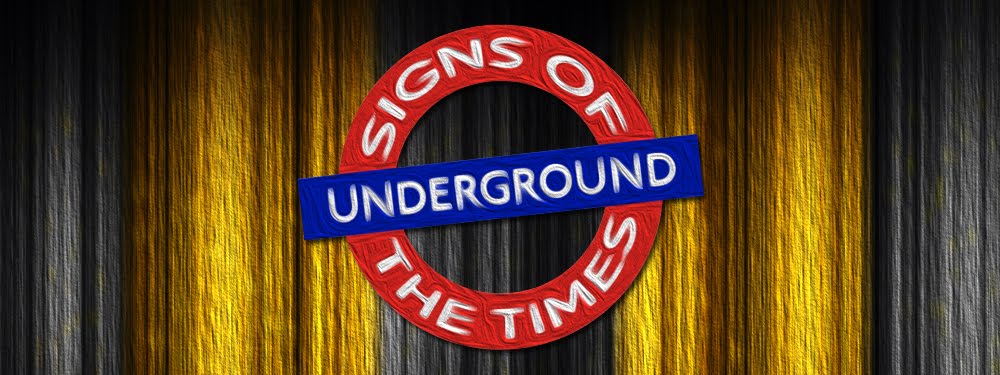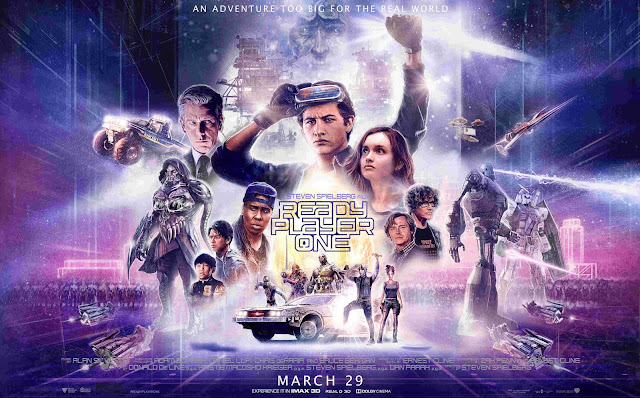Ready Player One is set in a dystopian, technology-obsessed United States, in the year 2045, where there is little left for the youth of America to do but go to online school and play with their virtual reality simulators. The main character, Wade Watts, is a teenage kid without much good going on in his life. He, as all of his peers, spends nearly all of his time enveloped in a virtual world called the "OASIS." The program was developed by a video game pioneer named James Halliday. To make a long story short (too late), Halliday is dead. When he died, Halliday released a recording with his will that announced to all OASIS users that he had left an "Easter egg" inside the programming. The first player to solve his riddles and find the egg would inherit his fortune and company, not to mention gaining control over the entire OASIS.
Thus, Wade and countless numbers of VR gamers would embark on a quest to find the egg. This venture begins to consume every waking moment of Wade's life. Wade gains notoriety in the OASIS by becoming the first person to solve one of Halliday's riddles. Despite becoming a hero to many, Wade quickly becomes Public Enemy No. 1 in the eyes of a nefarious corporation called IOI, whose singular aim is to obtain control over the OASIS by any means necessary. While Wade gets closer to the deciphering Halliday's technological teasers, the stakes are raised and the danger hits closer to home, as Wade's online success may lead to catastrophic real-world consequences.
 Cline's novel was originally released in 2011. I read it in 2014 or '15, around the time that the book got its first wave of maintstream popularity. I was working for Comic Con at the time, so, naturally, some of the people that recommended it to me were hardcore nerds (and I say that in the nicest way possible). I liked the book. I wouldn't say it was my favorite book or the best thing I've ever read, but I appreciated all the pop culture references and thought that aspect was fun. In the story, Halliday was obsessed with '80s pop culture, so many parts of the OASIS were based on movies, TV shows and video games that I grew up enjoying. I like the concept of this virtual world where you can go anywhere and do anything. (I wish there was something like that in real life. I'd play it, for sure.) The concept is just so cool, introducing a world that literally knows no bounds but those of our imagination.
Cline's novel was originally released in 2011. I read it in 2014 or '15, around the time that the book got its first wave of maintstream popularity. I was working for Comic Con at the time, so, naturally, some of the people that recommended it to me were hardcore nerds (and I say that in the nicest way possible). I liked the book. I wouldn't say it was my favorite book or the best thing I've ever read, but I appreciated all the pop culture references and thought that aspect was fun. In the story, Halliday was obsessed with '80s pop culture, so many parts of the OASIS were based on movies, TV shows and video games that I grew up enjoying. I like the concept of this virtual world where you can go anywhere and do anything. (I wish there was something like that in real life. I'd play it, for sure.) The concept is just so cool, introducing a world that literally knows no bounds but those of our imagination.
I was a bit hesitant to get excited about this movie. Because I am still so largely involved with Comic Con culture, this movie brought with it a ton of hype, so I wanted to keep my expectations tempered. I'm glad I did. I went in excited, but cautious, and ended up pleasantly surprised with how Steven Spielberg brought the story to life. The movie captured a lot of the excitement I experienced when reading the book and reminded me why so many people have become fans of the story in the first place.
It's a totally awesome concept, overall, but one thing that I had a hard time with while reading the book was the sheer enormity of the universe. There were so many pop culture references - and so many that were based on such old-school arcade games or movies - that I felt like some of it went over my head because I just wasn't familiar with a good chunk of what was being described to me (the video game "Joust" is a focal point in the book; I'd never previously heard of such a thing). It was still a fun read, but some parts were just a little too nerdy for me.
The movie is a bit the same way during some stretches, featuring a 15-minute scene that is based on a movie that I have never seen. However, I feel like the movie did focus more on movies and modern video games, which was a nice change, and made things more enjoyable for me. There are a lot of aspects of the book that just wouldn't translate well to the big screen (like one of the tests in the book, where Wade has to re-enact a scene from a Matthew Broderick movie, word-for-word). I felt like the film did a good job of telling a story that was similar to the book, but different enough to keep audiences engaged.
 Speaking of changes, the movie actually makes some major departures from the book. The car race showcased in the trailer and commercials and the Back to the Future DeLorean aren't in the book, the second major challenge in the movie is new, and several character arcs are altered significantly. So, if you're hoping or expecting the movie to be a direct translation of the book, think again. I'm ok with it, though. In fact, I think this is one instance where the movie is better than the book it's based on.
Speaking of changes, the movie actually makes some major departures from the book. The car race showcased in the trailer and commercials and the Back to the Future DeLorean aren't in the book, the second major challenge in the movie is new, and several character arcs are altered significantly. So, if you're hoping or expecting the movie to be a direct translation of the book, think again. I'm ok with it, though. In fact, I think this is one instance where the movie is better than the book it's based on.
An important thing to keep in mind is that this is a story that is very dependent on a particular demographic. The story was literally born in the 1980s and, as such, was written for readers of that era. If you were born in the year 2005, you have no business reading the book. Don't pick it up. Just don't. You won't get it. Similarly, the movie is targeting the same audience. There are wall-to-wall '80s references, from Atari to the Battletoads to (my personal favorite) the Goldie Wilson mayoral poster from Back to the Future that can be seen in the background of one scene. That's straight-up nostalgia and it's a fun trip down memory lane for people who grew up in the '80s and early '90s. With that in mind, I don't think this is a movie for children. They might be able to go and have a good time, but they won't get it. I am also not sure how much my parents would enjoy it. They love movies (and raised me right by introducing me to movies like Indiana Jones), but because the story is so centralized around video games (which my parents aren't interested in), I think that the virtual reality aspect of the story would not be appealing to them.
It may be of note that there is also quite a bit of typical teenage profanity (including one use of the F-word, used rather successfully for laughs) and a smattering of mild sexual innuendo, so keep that in mind when considering taking your kids or parents along to the theater.
If you are a product of the '80s, this is a movie you owe yourself to see. This is arguably the greatest mash-up of pop culture ever to hit the big screen and it really is a blast. I plan on seeing it again at least once (thanks, MoviePass!) and it's definitely a movie I'll be adding to my vast Blu-ray library when it comes out. I'd give it 4 stars out of 5 and a hearty recommendation for those old enough to appreciate it.
If you are a product of the '80s, this is a movie you owe yourself to see. This is arguably the greatest mash-up of pop culture ever to hit the big screen and it really is a blast. I plan on seeing it again at least once (thanks, MoviePass!) and it's definitely a movie I'll be adding to my vast Blu-ray library when it comes out. I'd give it 4 stars out of 5 and a hearty recommendation for those old enough to appreciate it.
Have you seen and/or read Ready Player One? If so, what did you think? Did you like the movie or book better? What was your favorite Easter egg? Join the conversation and let us know in the comments below.


